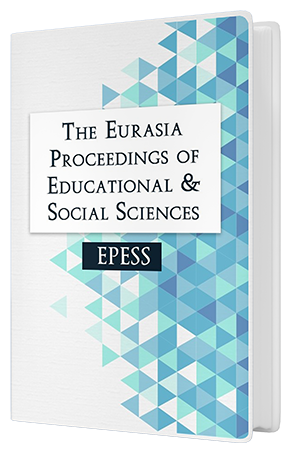PREDICTORS OF VOCATIONAL COLLEGE STUDENTS’ BEHAVIORAL INTENTION TO USE WEB-BASED LISTENING TEST
Keywords:
Web-based listening test, technology acceptance, vocational college, EFL course, online testingAbstract
Higher Education Institutions extensively use web-based testing applications to support their teaching and learning activities. Despite myriad benefits of these applications, students and institutions do not take full advantage of web-based testing applications due to a number of factors influencing behavioral intention. The purpose of this study was to examine vocational college students’ behavioral intention of a web-based listening test administered in a vocational collage. The participants of the study comprised 929 post-secondary students enrolled in an “English Foreign Language” course during 2015-2016 fall semester. Computer Based Assessment Acceptance Model was adopted to determine predictors of participants’ behavioral intention to use web-based listening test. The data were collected via an online questionnaire and analyzed using Pearson correlation coefficients and linear regression analyses. The results of the study revealed that students’ behavioral intention to use web-based listening test had significantly positive relationship with their computer self-efficacy, facilitating conditions, social influence, goal expectancy, content of the test, perceived ease of use, perceived usefulness and perceived playfulness. Results also showed that social influence, goal expectancy, perceived usefulness, perceived ease of use and perceived playfulness exerted a direct influence on behavioral intention to use web-based listening test. Students’ perceived playfulness appeared to be the strongest predictor of their behavioral intention to use within the web-based listening test.Downloads
Published
Issue
Section
License
Copyright (c) 2016 The Eurasia Proceedings of Educational and Social Sciences

This work is licensed under a Creative Commons Attribution-NonCommercial-ShareAlike 4.0 International License.
The articles may be used for research, teaching, and private study purposes. Any substantial or systematic reproduction, redistribution, reselling, loan, sub-licensing, systematic supply, or distribution in any form to anyone is expressly forbidden. Authors alone are responsible for the contents of their articles. The journal owns the copyright of the articles. The publisher shall not be liable for any loss, actions, claims, proceedings, demand, or costs or damages whatsoever or howsoever caused arising directly or indirectly in connection with or arising out of the use of the research material. All authors are requested to disclose any actual or potential conflict of interest including any financial, personal or other relationships with other people or organizations regarding the submitted work.




